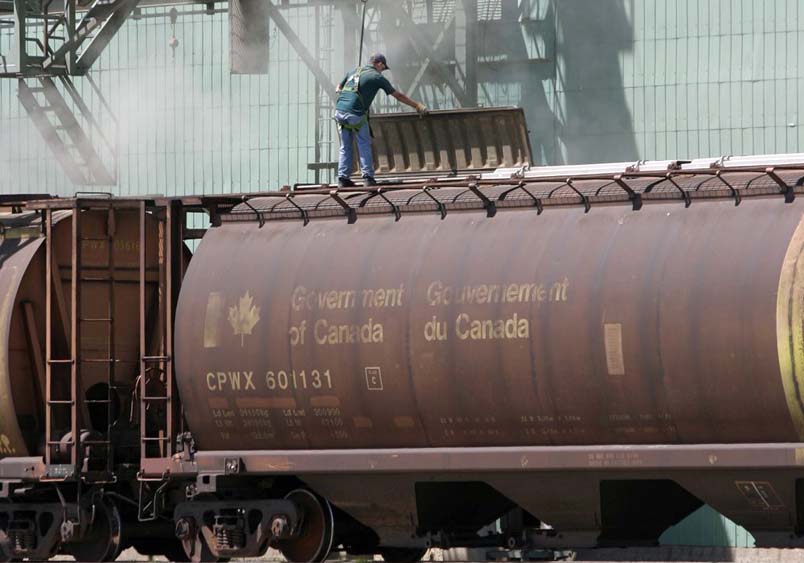

Canada - Slow harvest progress in Western Canada is delaying the movement of grain to prairie elevators and export terminals on the West
Coast and at Thunder Bay.
John Brooks, executive vice-president with Canadian Pacific Railway (CP), told investors in Montreal that the western Canadian harvest is as much as 30 percent
behind normal this year.
Poor harvest weather and late maturing crops have affected CP's grain volumes in September and will put pressure on the railway to move more grain later in the
shipping year, he said.
In the first three weeks of September, CP had shipped about 1,000 fewer car loads per week than normal.
"The harvest, on average, in really all three provinces on the Prairies, is anywhere from 20 to 30 percent behind where they should be, or where we would
expect them to be at this time of year," Brooks said 25 Sep 2019 at the CIBC Institutional Investors Conference.
"We would have expected the harvest to kind of charge that elevator system by now, but it just hasn't. It's simply because the wet weather, and a little
bit cooler weather, has kept the farmers and producers out of the fields."
Brooks described the delay as a timing issue, adding that larger-than-normal grain volumes are expected later in the shipping year.
Grain companies that book rail cars are "sold out in December in terms of capacity through Vancouver and Thunder Bay."
"The crop size is big, it's going to be 70 million metric tonnes plus, and you've got a fair carry-in from last crop year," Brooks
said.
"All this does is kind of increase the pressure and condense the peak season, but it also probably prolongs and provides us a little bit of opportunity in
the tail end of 2020 because that grain will just get pushed back a bit."
At Canadian National (CN), executive vice-president Ghislain Houle offered a similar view, suggesting CN's grain movements for the last half of the 2019
calendar year might be lower than expected.
However, that will likely translate into larger than normal grain volumes in early 2020 until the beginning of the 2020-2021 crop year.
Canada's major railway companies moved record amounts of Canadian grain in early 2019, but commercial movements have been slow since 31 Jul 2019.
At CP, U.S. grain volumes have also been sluggish, particularly movement of American soybeans shipped to China through the Pacific Northwest.
CP typically expects to ship 60 to 70 trains of American soybeans per month through the Pacific Northwest during periods of peak demand.
This year, due to trade disputes between the United States and China, peak monthly volumes have fallen to 15 to 30 trains per month.
"That is an area that has no doubt been impacted, but just like in Canada, only so much of that grain can be held," Brooks said.
"There's a lot of soybeans that are sitting out in the upper U.S. Midwest that are going to have to go to market."
Canada's railway companies are watching closely for signals that the North American economy is slowing.
CN and CP said they are adjusting their operations in anticipation of slower demand.
Houle said CN is aggressively reducing its inventories of leased rail cars and less-efficient leased locomotives.
Brian Cross.
provisions in Section 29 of the Canadian
Copyright Modernization Act.

